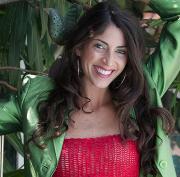 Photo: Getty Images
Photo: Getty Images
Socrates was onto something when in 400 BC he coined the phrase “Know Thyself.” Thousands of years ago, however, the man couldn’t have gotten it wholly correct, and for that we’ll cut him some slack.
Modern psychologists will tell you that Socrates only had it half right. It was Socrates’ message that “an unexamined life is not worth living,” but researchers today said that the examining needs to come from a variety of sources.
Researchers at Washington University in St. Louis said that an accurate and insightful depiction of oneself cannot come from oneself – that individuals are not the best interpreters of their own selves.
Assistant professor Simine Vazire and her colleague Erika N. Carlson suggested an addendum to Socrates’ thinking: Ask a friend.
“There are aspects of personality that others know about us that we don’t know ourselves, and vice-versa,” said Vazire. “To get a complete picture of a personality, you need both perspectives.”
The team from Washington University in St. Louis said it’s not that we know nothing about ourselves, rather, our understanding is obstructed by blind spots – created by our wishes, fears, and unconscious motives – used to maintain a high self-image of oneself.
The paper, which was published in Current Directions in Psychological Science, tells us that those closest to us – friends and family – can add crucial pieces to the puzzle that we otherwise would be oblivious to.
Oddly enough, however, even strangers have myriad cues to who we are by observing our clothes, musical preferences or Facebook postings, for example, that can also add to the bigger picture puzzle of piecing us together as humans.
Researchers reported that people don’t always see the same things about themselves as others see and vice versa.
For example, “Anxiety-related traits, such as stage fright, are obvious to us, but not always to others. On the other hand, creativity, intelligence, or rudeness is often best perceived by others,” according to a release by the Association for Psychological Science.
Researchers say the reason our strengths are often best perceived by others is because they are most often out in the public sphere and because they carry a value judgment — that is, something that tends to affect self-judgment.
Just because the world is a better judge of our public traits does not always mean the world is the harsher critic. Others tend to give us higher marks for our strengths than we credit ourselves with.
So with researchers telling us that everyone needs to chime in and tell us about ourselves, for the betterment of understanding ourselves and helping others better know themselves, we should all embrace this concept with open arms, right?
Well, maybe it’s not so simple.
“It’s amazing how hard it is to get direct feedback,” Vazire noted, adding that she isn’t advocating brutal frankness at any cost. There are good reasons for reticence.
People are complex, social cues are many and perceptions of others are clouded by our own needs and biases.
The challenge, then, Vazire proposed, is to figure out how to use such knowledge for the good.
“How can we give people feedback, and how can that be used to improve self-knowledge?” Vazire asked. “And how do we use self-knowledge to help people be happier and have better relationships?”
While we may ask and receive others’ opinions hesitantly, it is important to keep in mind that you, nor do others, have a wholly accurate or complete depiction of you. Thus, stressing that open and honest communication with those around us is even more important for maintaining and developing relationships.
Who knows you best? Not you, say psychologists
http://www.psychologicalscience.org/index.php/news/releases/who-knows-you-best-not-you-say-psychologists.html
Socrates
http://www.spaceandmotion.com/Philosophy-Socrates-Philosopher.htm
Socrates
http://en.wikipedia.org/wiki/Socrates
Bailey Mosier is a freelance journalist living in Winter Park, Florida. She received a Masters of Journalism from Arizona State University, played D-I golf, has been editor of a Scottsdale-based golf magazine and currently contributes to GolfChannel.com. She aims to live an active, healthy lifestyle full sunshine and smiles.






Add a CommentComments
There are no comments yet. Be the first one and get the conversation started!